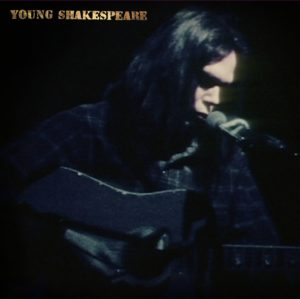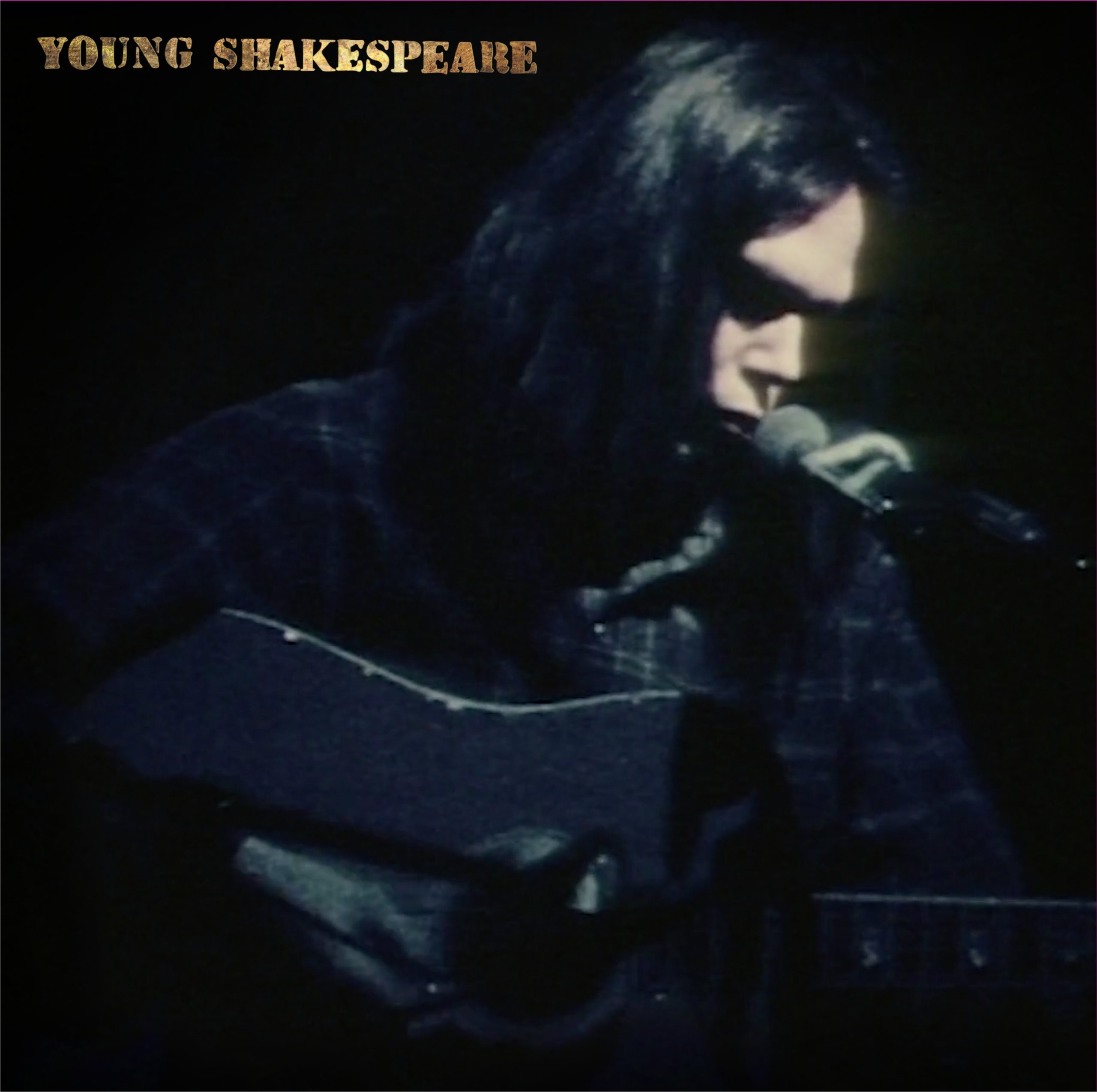 Neil Young
Neil Young
Young Shakespeare
WARNER
9/10
For any music-loving Torontonian, Massey Hall is a sonically exceptional setting and a pillar of the city’s historically diverse arts scene. Perhaps the venue’s most intimate and calmingly triumphant moments were captured on Neil Young’s Live at Massey Hall 1971, an enduring live record that captures one of Canada’s greatest songwriters at his musical peak.
Three days after that show, Young played at the now-destroyed Shakespeare Theatre in Stratford, Connecticut, a performance that was captured—and, thankfully, preserved—for release as Young Shakespeare. Like its unofficial sister record, Shakespeare is a beautifully tender collection that is as candid as it is classic. It’s rich in timbre and steeped in complexion, making it a nearly essential listen and a brilliant summation of the era’s folk movement.
Like any pre-Harvest solo live performance, Young belts out raw versions of the then-unreleased “Old Man” and “The Needle and the Damage Done” while giving light to the Crazy Horse track “Dance, Dance, Dance,” among others. Elsewhere, the heartbreakingly sorrowful “A Man Needs a Maid” blends into a piano rendition of “Heart of Gold,” the effects of which cause silence to fall upon nearly every member of the awestruck audience.
It may not be terribly different from his performance at Massey, but it still carries with it loads of nuance; Young’s noodling between songs gives his presence a ton of personality—so, too, do the slight differences in performance between songs.
Young, always blunt and sarcastic, banters endearingly with the crowd throughout, even taking a lighthearted jab at his youthful audience prior to an attempted group sing-along of “Sugar Mountain” (“If you don’t know the words…you’re all university students, just memorize them after the first time”). It’s this self-awareness and honesty that not only makes his songs seem more genuine, but gives a reason to listen to multiple versions of what is more or less the same set.
At its core, Shakespeare captures the essence of what we all picture when the name Neil Young comes to mind: a long-haired, slightly disheveled, and deeply reflective songwriter hunched over an acoustic guitar in a cavernous theater. Like any good live record, it flows wonderfully and catalogues an intangibly magical musical experience.







